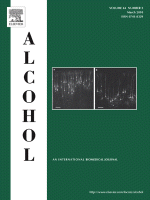Many previous attempts by fetal alcohol spectrum disorders researchers to compare data across multiple prospective and retrospective human studies have failed because of both structural differences in the collected data and difficulty in coming to agreement on the precise meaning of the terminology used to describe the collected data.
Although some groups of researchers have an established track record of successfully integrating data, attempts to integrate data more broadly among different groups of researchers have generally faltered. Lack of tools to help researchers share and integrate data has also hampered data analysis. This situation has delayed improving diagnosis, intervention, and treatment before and after birth.
We worked with various researchers and research programs in the Collaborative Initiative on Fetal Alcohol Spectrum Disorders (CI-FASD) to develop a set of common data dictionaries to describe the data to be collected, including definitions of terms and specification of allowable values.
The resulting data dictionaries were the basis for creating a central data repository (CI-FASD Central Repository) and software tools to input and query data. Data entry restrictions ensure that only data that conform to the data dictionaries reach the CI-FASD Central Repository.
The result is an effective system for centralized and unified management of the data collected and analyzed by the initiative, including a secure, long-term data repository. CI-FASD researchers are able to integrate and analyze data of different types, using multiple methods, and collected from multiple populations, and data are retained for future reuse in a secure, robust repository.
Read Full Abstract
Request Reprint E-Mail:
Although some groups of researchers have an established track record of successfully integrating data, attempts to integrate data more broadly among different groups of researchers have generally faltered. Lack of tools to help researchers share and integrate data has also hampered data analysis. This situation has delayed improving diagnosis, intervention, and treatment before and after birth.
We worked with various researchers and research programs in the Collaborative Initiative on Fetal Alcohol Spectrum Disorders (CI-FASD) to develop a set of common data dictionaries to describe the data to be collected, including definitions of terms and specification of allowable values.
The resulting data dictionaries were the basis for creating a central data repository (CI-FASD Central Repository) and software tools to input and query data. Data entry restrictions ensure that only data that conform to the data dictionaries reach the CI-FASD Central Repository.
The result is an effective system for centralized and unified management of the data collected and analyzed by the initiative, including a secure, long-term data repository. CI-FASD researchers are able to integrate and analyze data of different types, using multiple methods, and collected from multiple populations, and data are retained for future reuse in a secure, robust repository.
Read Full Abstract
Request Reprint E-Mail:
aarenson@iupui.edu
